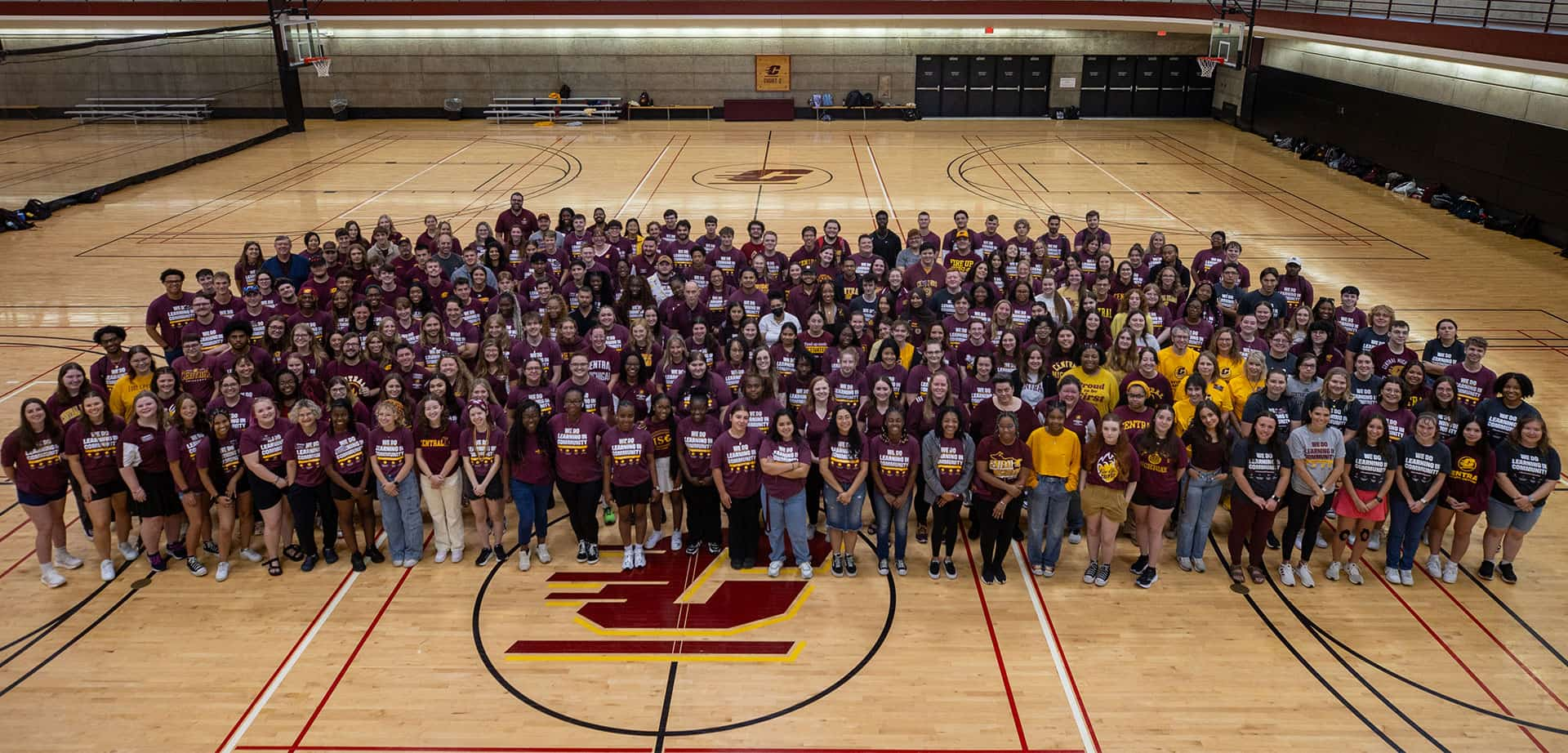About Residence Life
Make our halls your home. Living on campus isn't just about a comfy room, it's about becoming part of a vibrant community where you can make a real difference. We want you to feel empowered to be a responsible citizen and leave your mark on campus life! We have a dedicated team at the Office of Residence Life ready to help you thrive.
Our units include:
- Learning in community: Empowering you to reach your full potential.
- Care Advocate Program: Providing support and resources.
- Central Office in Ronan Hall: Your one-stop shop for information and assistance.
- Facilities Operations: Keeping your room and hall running smoothly.
- Residence hall directors: Meet the staff in charge of all the resident halls.


Our mission
We are committed to providing residents a comfortable, educational, diverse and caring community where academic success, personal growth and social responsibility are valued.

Our vision
To provide generations of college students a nationally-recognized, cutting-edge, living environment.
Our learning goals and outcomes
Identity
Students will engage in self-discovery and reflection to construct a sense of purpose.
Equity and justice
Students will explore diversity in identities, backgrounds, perspectives and experiences among individuals and groups. They will engage in dialogue about issues related to privilege and oppression to foster equity and justice.
Relationships and communities
Students will live productively among others and develop a caring network.
Social responsibility
Students will demonstrate an understanding of, and a commitment to, creating safe, healthy and thriving communities.
Residency requirements
All first- and second- year students are required to live on campus. National research shows that students who live on campus have higher grade point averages, are more satisfied with their college experience, are more engaged in co-curricular experiences and are more likely to graduate than students who live off-campus. Exceptions to the policy may be granted if a student mets certain special circumstances.
- Early Middle College students are classified as first-year students and are required to live on campus for two academic years.
- Transfer students have the option to live on campus.
Care Advocate Program
Care Advocates are licensed mental health professionals located in each residence hall. For more than 25 years, the program has provided mental health support and programming to students living on campus. Care Advocates support a variety of mental health and emotional distress topics including: depression, anxiety, financial issues, academic concerns, alcohol use, grief and loss, roommate issues, sexual assault, suicide, eating concerns and more. We pride ourself on being a community that cares deeply about the health, well-being, safety and success of every student. By living on campus, you'll have access to many support services and resources, including the Care Advocate Program and CMU Cares.
Care Advocate program staff
| Name | Title | Location(s) Served |
|---|---|---|
| Andrea Roggenbuck | Director of CMU CARES | Campus-wide |
| Timothy Popma | Assistant director of CMU CARES | Campus-wide |
| Leslie Stockford | Care outreach assistant | South Community |
| Deana Hunt | Care advocate | Towers Community |
| Erika Moss | Care advocate | East Community |
Central office staff
| Name | Title | Location(s) served |
|---|---|---|
| Nick Sweeton | Executive director of Residence Life | Campus-wide |
| Alex Martinez | Associate director of Residence Life | Campus-wide |
| Audrey Elworth | Assistant director of residential education | Campus-wide |
| Alisha Norman | Assistant director of housing assignments | Campus-wide |
| Drew Mason | Manager of housing operations | Campus-wide |
| Kylee Walden | Coordinator of marketing and events | Campus-wide |
| Pamela Miller | Executive office specialist | Campus-wide |
Facilities staff
| Name | Title | Location(s) served |
|---|---|---|
| Ryan Lewis | Associate director for facilities operations | Campus-wide |
| Tom Sharrar | Building maintenance worker | Towers Community |
| Dave Jarosiewicz | Building maintenance worker | Towers Community |
| Steve Anderson | Building maintenance worker | East and South Communities and Graduate Housing |
| Matt Little | Building maintenance worker | East and South Communities and Graduate Housing |
| Kevin Hammar | Building maintenance worker | East and South Communities and Graduate Housing |
| Nate Thering | Building maintenance worker | Campus-wide |
| John Byers | Pest Management | Campus-wide |
East Community staff
| Name | Title | Location(s) Served |
|---|---|---|
| Steely Pegg | Assistant director | East Community |
| Hannah Behe | Residence hall director | Emmons Hall |
| Eva Steepe | Residence hall director | Herrig Hall |
| Jessa Heroux-Croy | Residence hall director | Saxe and Fabiano Halls |
| Heaven Silas | Residence hall director | Woldt and Celani Halls |
South Community staff
| Name | Title | Location(s) Served |
|---|---|---|
| Tim Mulligan | Assistant director | South Community |
| Samantha Cole | Residence hall director | Beddow Hall |
| Claudia Hess | Residence hall director | Merrill Hall |
| JD Copus | Residence hall director | Sweeney Hall |
| Joshua Heath | Residence hall director | Thorpe Hall |
Towers Community staff
| Name | Title | Location(s) Served |
|---|---|---|
| Justin Thomason | Assistant director | Towers Community |
| Traci King | Residence hall director | Campbell, Carey and Cobb Halls |
| Darell Armentrout | Residence hall director | Kesseler and Wheeler Halls |
| Maddie King | Residence hall director | Kulhavi Hall |
| Alància Crossley | Residence hall director | Troutman Hall |